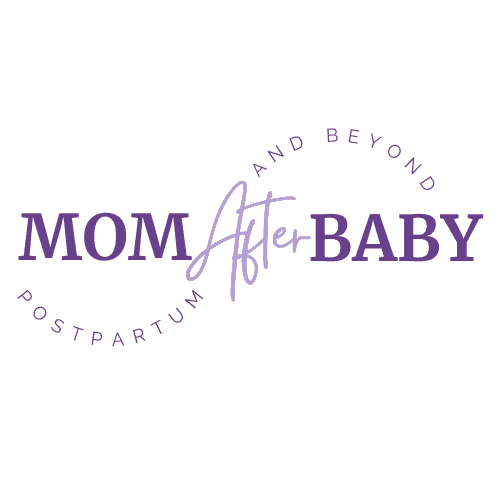13 Practical Ways to Fix An Unhappy Marriage After Baby
This post may contain affiliate links that I may receive a commission from if you click & buy. In addition, the information on this site is NOT intended to be medical advice. See my full policy for more information.
Having a baby is undoubtedly a joyous experience in any couple’s life. However, it can also put significant strain on the relationship. Thus, leading to feelings of unhappiness and dissatisfaction within the marriage. Whether it’s your first baby or 3rd baby, we have 15 actionable tips to navigate an unhappy marriage after having a baby. The approach of these tips are rooted in understanding the challenges that new parents face while offering practical advice to help strengthen their bond and find happiness amidst the chaos of parenthood.
According to world-renowned John Gottman (who has published over 200 academic articles, over 40 books, and conducted 40 years of research), “67% of couples experienced a precipitous decline in relationship satisfaction in the first 3 years of the baby’s life“, per his research.
And when you think about it, it’s not much of a surprise. Between sleep deprivation, decreased marital satisfaction, and even just trying to balance out the household chores — new parents are faced with many moving pieces they likely are not prepared for.
If you’re feeling like your marriage after baby is slowly slipping through the cracks, let’s take a look at some of the reasons these relationship problems happen in the first place.
Does Marriage Change After Baby?
First comes love, then comes marriage, then comes the baby in the baby carriage…except, now your marriage is on the rocks. What gives?!
The first year of parenthood is a whirlwind of emotions, adjustments, and sleepless nights. New parents often face sleep deprivation — a significant contributor to mood swings and irritability. Additionally, societal expectations, fueled by social media portrayals of perfect family life, can create unrealistic standards that lead to feelings of inadequacy from both moms and dads.
The added responsibilities of childcare, finances, and household chores can leave couples with less time for each other, leading to a shift in priorities and potential relationship problems. It’s essential to acknowledge these challenges and work together to navigate the unique journey during that first year of parenthood. Think of it as, setting a strong foundation.
Why Are My Husband and I Fighting So Much After Having a Baby?
Emotional Changes & Feelings of Resentment:
Did you know, 1 in 10 dads and 1 in 7 moms suffer from postpartum depression? Imagine, if you’re in that postpartum stage with BOTH partners dealing with mental health problems. How can they show up best for one another?
Maternal mental health disorders are very real and they can easily break a strong marriage. Not because any parent wants them to, but because so many parents are blindsided by these challenges. After all, many of us can probably relate to feeling like ‘I didn’t think it could happen to me‘.
This is why it’s so important to carve out time during pregnancy to learn about these types of changes and mood disorders that can occur. They do not discriminate one bit. Often once a parent experiences it, they don’t even realize they’re going through it (or they’re in some denial of it) which delays the process of getting the appropriate help.
In addition, partners may feel resentful of one another:
- Why does dad get to carry on with his life while new mothers are stuck dealing with all of the baby things?
- Why does mom get to bond with the baby while dads are often shut out and not trusted to do simple tasks with their new baby?
These are just some of the feelings new parents will experience that can slowly build up resentment over time. Leading to many more arguments, less affection, and ample division between them.
Communication Breakdowns:
This is one my partner and I can relate to very well, unfortunately. Whenever we have big life changes (such as a new baby), we mustn’t let our communication with our partner break down. Meaning, we need to be very mindful of how we talk to them.
However, the stress and exhaustion can make it difficult for couples to express themselves clearly and empathize with each other’s perspectives. Misunderstandings may arise, leading to frustration and arguments. Establishing effective communication strategies, such as active listening and expressing emotions without blame, can help couples navigate these challenges more successfully. Seeking professional support through couples counseling can also be beneficial in enhancing communication skills and fostering a healthier dynamic.
That’s why I’m excited to share about an online course created JUST for parents to help them babyproof their relationship. And if that doesn’t entirely align with where your relationship is at, they offer many different options from online courses to private coaching! You’ll start communicating together like pros and notice the silly arguments diminishing and the connection rebuilding.
Managing Finances:
For some, the expenses of raising a child can add up quickly. Couple that with potential changes in employment or income due to parental leave — it’ll easily strain a couple’s financial situation. Do both parents work? Now you have to factor in child care, it’s a lot to think about without a plan ahead of time. Add in differing views on budgeting and spending priorities may surface which can lead to even more disagreements.
It is no surprise that managing finances can lead to marital issues after having a baby. Imagine, spending your free time working, not bonding with your baby just so you can make ends meat. This IS the reality for some parents and it leads to a crucial issue: disconnection. You’re disconnected from your partner, you’re disconnected from your children, and
The Division of Labor and Role Expectations:
Traditional gender roles or preconceived notions about parenting responsibilities may lead to unspoken expectations between partners. For example, ‘it’s mom’s job to care for the baby and it’s dad’s job to go to work’. This can cause disagreements and marriage problems in a jiffy. Maybe mom wants to go back to work or keep hitting career goals while dad stays home. Maybe both parents will work.
Maybe mom doesn’t want to breastfeed and expects dad to help with bottle feedings (yes, including night wakings) — do you see how easily these social norms can quickly become broken down and problematic when not communicated? Couples need to openly discuss their roles as parents, ensuring a fair distribution of responsibilities and acknowledging the evolving nature of parenting dynamics. Flexibility and mutual understanding are key in adapting to the new challenges parenthood brings.
Lack of Sleep:
Let’s face it, newborns require constant care, leading to sleepless nights for both parents. The exhaustion and sleep deprivation can amplify stress levels, making it easier for minor disagreements to escalate into arguments. And it can take its toll on even the best relationships.
The strain of sleepless nights can also contribute to heightened emotional sensitivity, making it harder for couples to communicate openly about their needs and seek support from each other. In other words, if you’re a sleep-deprived new parent, hang in there.
Little to No Intimacy
So many new parents ask: Is It Normal to Not Have a Sex Life After Having a Baby?
Ah, the intimacy (aka diminishing sex life). The birth of a baby can leave mom feeling NOT in the mood (especially for the first couple of months as she’s physically healing down there). Word of advice: a 6-week checkup is NOT enough to clear a woman for intercourse.
Often moms have lingering pelvic floor issues that get missed, so do not assume a 6-week postpartum checkup is enough to get the party started again.
However, the good news is that intimacy isn’t just sex! Intimacy also includes acts of physical touch and affection.
The goal here isn’t to have a relationship loaded with intercourse but to have a relationship that feels safe, and comfortable and includes ALL aspects of intimacy to keep your relationship strong (even during the early days).
One of my favorite tips I read from John Gottman, was called the 6-second kiss. The goal is to give your partner at least one 6-second kiss each day (in place of quick unconnected pecks on the cheek that become part of routine life). During these 6 seconds, you allow yourself to create some form of physical touch, bond with your partner, possibly lead to other forms of intimacy, but more importantly, help you both feel connected!
Give it a try and leave a comment on this article letting me know your thoughts!
Need help connecting with your partner after having a baby? Do you feel like you two are drifting apart like you don’t even know each other anymore? Let Babyproof Your Relationship help get you two back to feeling connected and strong again. Yes, even after you have a baby.
>> CLICK TO LEARN MORE
13 Ways to Rekindle Your Unhappy Marriage After Baby
1. Embrace New Roles
A vital element in transitioning into parenthood is teamwork. Approach parenting as a partnership will help you see that each parent plays a vital role in this whole raising kids thing. That said, you will both likely shift into a new role. Motherhood and fatherhood can sometimes be all too consuming, reasonably so.
However, each of these roles unravels in different ways. For moms, maybe she is giving up some hobbies in those early days to prioritize her recovery, learn how to breastfeed, and get into a rhythm with her baby. For Dad, maybe he’s also putting off some of his own hobbies so that he can make sure his focus is on maintaining stability and safety for his growing family.
Whatever role you fall into, just know it’s normal in these early days of parenting to become a little consumed with it. But the best way to embrace these roles and ensure they don’t last forever is to talk to check in and talk to one another about it consistently.
2. Share Parenting Responsibilities, Together
It’s important to distribute childcare and household responsibilities somewhat equally, to prevent one partner from feeling overwhelmed. Now, that’s not to say each partner may have to take on some selective tasks that can’t entirely be shared with the other and that’s ok. However, the point is to make sure you don’t lose sight of parenting being a teamwork effort. When you lose sight, it leads to arguments, division, and worst of all, resentment. You’re in this parenting thing together.
3. Open Communication
Establishing open communication is the cornerstone of a healthy relationship (not just with parents). Amidst the chaos of parenthood, take the time to sit down and discuss your feelings, concerns, and expectations. You should want to create a safe space for both you and your partner to express one another, fostering understanding and connection.
This means that when your partner is sharing their feelings, you truly listen. You listen to understand and be curious about what they’re experiencing. And the same should be reciprocated to you.
4. Manage Expectations
Societal expectations will have you believing all sorts of false narratives and expectations when it comes to parenting.
- Moms should love every minute of parenting or else she shouldn’t have had a child.
- Dads should do everything to cater to moms, after all, she had the baby.
- Moms should bounce back quickly so dad isn’t left neglected and wanting romance elsewhere.
- Moms should willingly become stay at home moms — it’s what she was made for, duh.
- Dads should ‘babysit’ to allow mom some free time.
- Dads should be more involved with parenting, but they also cannot be trusted since they’re not moms.
These are just some societal expectations first-time parents are faced with to try and live up to, to have a perfect relationship after baby. And if you’ve heard these or felt any pressure by them — I want you to throw them all in the garbage, because they’re not realistic.
Instead, set realistic goals for your relationship. Embrace imperfections as a natural part of the journey and focus on the positive moments, no matter how small. Remember that parenting is teamwork! So, find ways to have grace for one another as you navigate life with a new baby home, offer help to each other because you want to, and don’t ever be afraid of asking for help from each other (or from an expert) if it comes to that.
5. Prioritize Alone Time
As new parents, it’s easy to become consumed by the demands of a newborn and forget about your own personal well-being. Carving out moments for self-care and alone time is crucial. Now, there will be moments when baby needs to come first, you put that baby first and you don’t feel bad about it. Its the season of new parenthood.
However, there will be moments you can choose between doing dishes or spending a little time on self-care while baby naps, and you should NEVER feel bad about choosing you. Whether it’s a quiet bath or a short walk alone (if someone can stay home to watch baby), these moments can provide the mental and emotional space needed to navigate challenges with a clearer mindset. Something BOTH parents need if they want to embrace being a happy couple more often than not.
6. Seek Family Therapy
Sometimes, the guidance of a family therapist can provide valuable insights and tools for navigating challenges. Having a baby is a major change in a couple’s life. Professional support can help couples develop effective communication strategies, resolve conflicts, and strengthen their bond. Keep in mind, that therapy won’t always keep you in your comfort zone. In fact. much of therapy is about getting comfortable with the uncomfortable.
7. Schedule Date Nights Together (No, They Don’t Need To Be Fancy)
For new parents, finding time for a date night can be challenging to say the least. However, maintaining a strong connection is crucial for the well-being of your relationship. One practical approach is to schedule at-home date nights after the baby has gone to sleep. Create a cozy feel by dimming the lights, playing soft music if you wish, and preparing a simple yet special meal together. This intimate setting allows for meaningful conversations and quality time without the need for a babysitter. Additionally, incorporating activities such as watching a movie, playing board games, or even engaging in a shared hobby together can add a touch of fun and relaxation to the evening. My husband and I used to LOVE using Bestself Co. Relationship Card Decks to keep things fun and lively.
To break the routine and add variety to your usual at-home date nights, new parents can also plan outings to reconnect outside the home. This could involve arranging for a trusted friend or family member to babysit for a few hours while you explore local cafes, parks, or attend events together. Alternatively, consider scheduling daytime dates when the baby is more likely to be sleeping/napping and less demanding. By combining both at-home and out-of-the-house date nights, you can create a balanced and sustainable routine that nurtures your relationship amidst the joys and challenges of parenthood.
8. Reach Out for Support
Recognizing the need for support and actively seeking help is an important step for new parents in maintaining a close and strong relationship. Friends and family members can provide invaluable assistance, whether it’s through offering practical advice, sharing their own experiences, or lending a helping hand with household tasks or childcare.
In addition to seeking support from friends and family, you should also be willing to reach out to professionals such as baby’s pediatrician, lactation consultants, or therapists specializing in family dynamics. These experts can provide guidance tailored to the unique challenges of raising a newborn and it’s impact on your relationship.
You and your partner might also look into attending parenting classes or support groups which can also offer a sense of community and shared experience. By proactively reaching out for help, you not only gain resources and support, but you also reinforce your bond as a couple by navigating the journey of parenthood together, hand in hand.
9. Do Something Intentional With Eachother
Being intentional with one another is another small, but great gesture to remind your partner that you love them. From holding space for them to communicate their feelings, to setting aside dedicated time for each other, all allow for quality connection. More intentional ideas for new parents:
- a heartfelt conversation during a feeding session
- a shared moment during a diaper change
- expressing gratitude for each other’s contributions
- being mindful of maintaining a balance between parenting duties and nurturing the romantic aspect of the relationship
10. Check In With Eachother
Setting aside dedicated time each week to see how your partner is doing can ensure that you remain connected emotionally and provide non-negotiable mutual support. These check-ins serve as an opportunity for you and your partner to share your experiences, express feelings, and address any concerns or roadblocks that may arise in the journey of parenting.
Here are some simple conversation starters to initiate a weekly check-in:
- How are you feeling about our parenting journey so far?
- What can I do to support you better?
- Is there anything you thought we did awesome this week? What areas did you feel could use improvement?
11. Let Go of Little Arguments
As we talked about in this article, some areas of conflict or arguments can revolve around household responsibilities, intimacy, finances, or parenting roles/methods. However, holding onto these conflicts can create unnecessary tension, potentially impacting the overall well-being of not just you and your partner, but the entire family unit you’ve built at home.
So, how can you let go? Stop trying to be right. Instead, engage in constructive conversations, acknowledging each other’s perspectives with genuine curiosity and seek a compromise that can help both of you feel supported.
12. Don’t Neglect Intimacy
It’s no surprise the societal narrative often emphasizes the resumption of sexual activity soon after childbirth. Leaving partners feeling neglected or depressed that the new mom ‘doesn’t want them’, when that couldn’t be farther from the truth. Birth partners must recognize and respect the physical and emotional recovery that mothers undergo during postpartum. Instead of rushing into sexual intimacy, focus on alternative forms of connection that can strengthen your bond as a couple because yes, they exist!
Non-sexual intimacy is equally vital and can include activities such as cuddling, holding hands, hugging, and sharing moments of quiet closeness. These gestures not only maintain a sense of connection but also provide emotional support during a period of significant adjustment. Think about it, just being able to lean into your significant other during a stressful moment and feel their love is as intimate as it gets. Though the lack of having sex won’t last forever, we must acknowledge the other ways to prioritize intimacy for a strong partnership during those early days of parenthood.
13. Be a ‘Bucket Filler’
Lastly, one of my favorites taken straight out of the book: Have You Filled a Bucket Today? by Carol McCloud, is to be a bucket filler. Being a bucket filler in the land of early parenting is a gold mine. Being a bucket filler means doing kind things for someone else, just because. And because you made their day, you fill up your own bucket too.
If we all thought about being bucket fillers more during postpartum, I think we’d find it could be a much more pleasant experience for everyone.
By now, you should have a pretty good grasp of what to expect in new parenthood. From the many ways a marriage can change after having a baby to practical solutions to remedy an unhappy marriage after baby — I hope you and your partner can find the path to connection, love, and teamwork despite all the chaos of raising a newborn.




